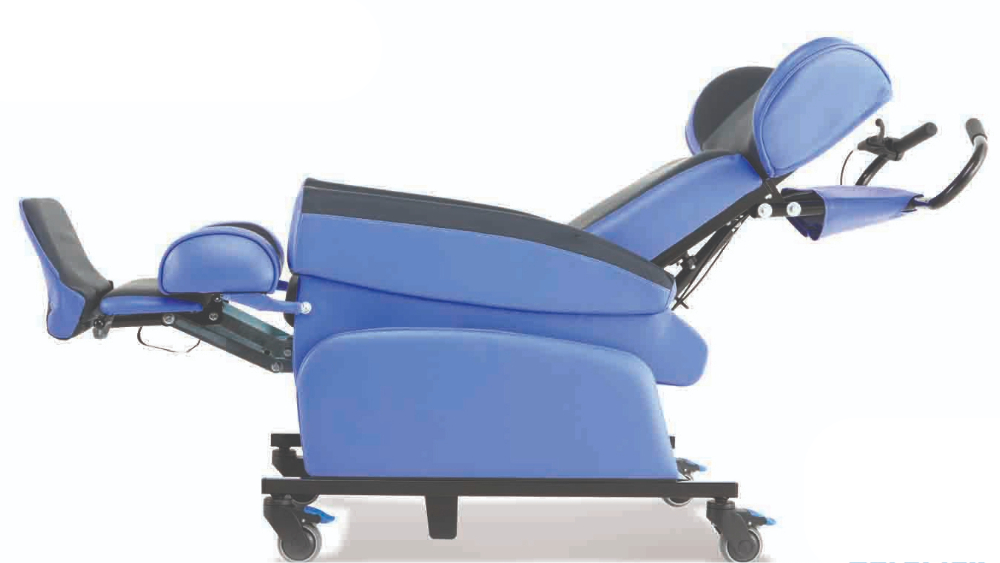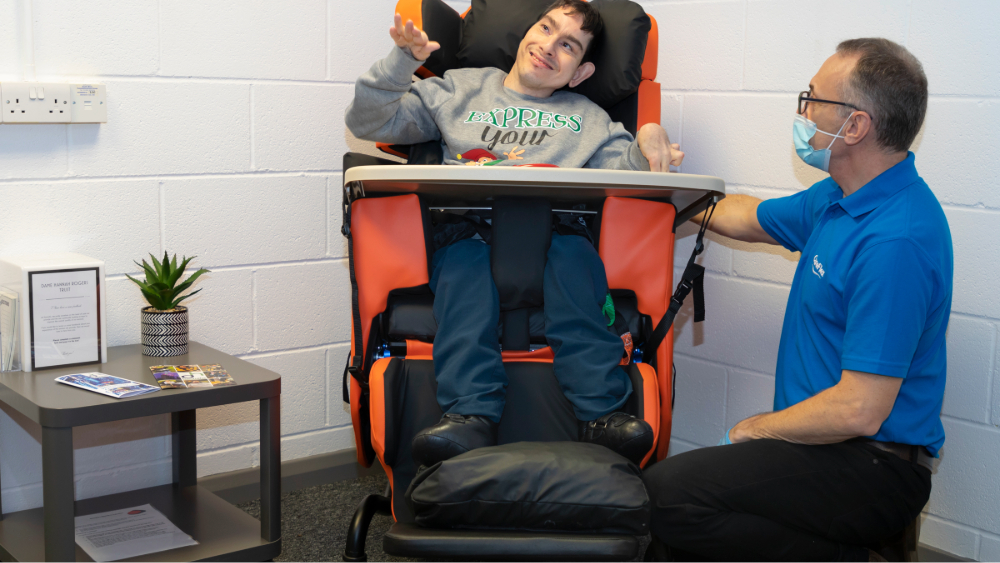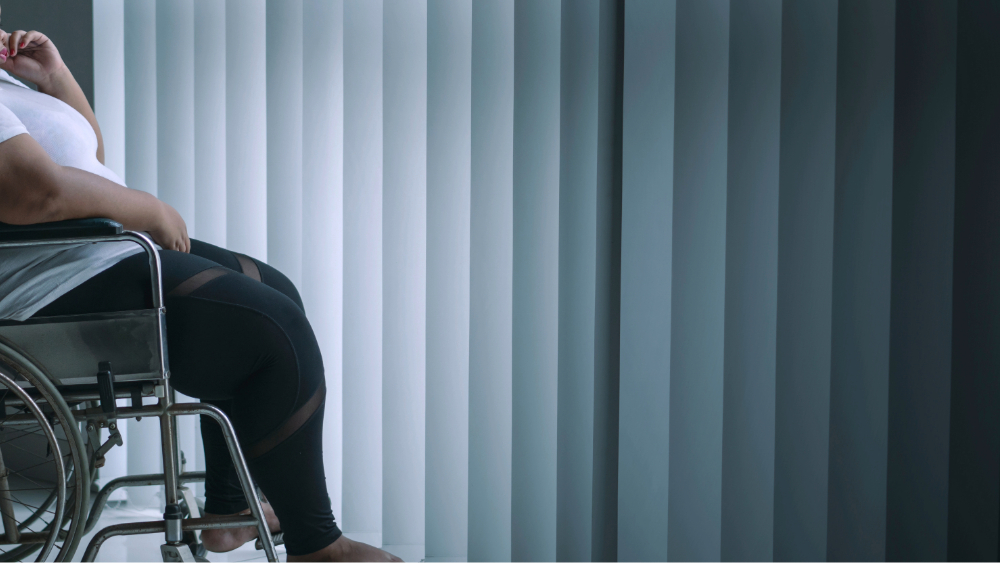The COVID-19 pandemic has created a tidal wave of need for rehabilitation. Long after individuals who experienced a mild case of the virus recover, many thousands will still be living with its devastating effects. Rehabilitation will be critical for survivors who present with long term problems. Additionally, rehabilitative services will be required by those who have become deconditioned as a result of social isolation and reduced access to healthcare for non-COVID-19 conditions.1
Rehabilitation will be complex as health and social services face unprecedented challenges. There will be a need for a multi-disciplinary holistic approach to recovery.
Why is Rehabilitation Important?
As waves of in-patients are discharged back into the community, many following long periods in critical care, health and social care services need to prepare for a range of respiratory, musculoskeletal, neurological and psychological challenges.2 Continuity of rehabilitation along a person’s care pathway is imperative as delays and/or interruptions can affect physical, psychological and emotional recovery.3
The extent of the rehabilitation needs of the population will only emerge as times goes on; however, the NHS Discharge to Assess Model4 predicts that:
- 50% of people will not require health or social care input post-discharge.
- 45% of people will be able to be discharged home with support from health and social care.
- 4% of people will require rehabilitation in a bedded setting.
- 1% of people will have experienced a life-changing event and will be unable to be discharged home from the acute setting.
What Challenges Can Individuals Experience?
Individuals recovering from COVID-19 are expected to present with the following challenges5:
- Weakness – Anecdotal evidence suggests that a higher than usual incidence of intensive care acquired weakness is being recorded in COVID-19 patients compared to the general critical care population. Weakness can also be seen in those who become deconditioned from a non-critical care hospital stay, especially those who are frail. This decline in muscle mass and strength is linked to increased falls, functional decline, and increased immobility.
- Fatigue – Fatigue is a common challenge reported by individuals following a critical care admission; however, COVID-19 patients are reporting extreme fatigue beyond the usually reported levels. This is likely to impact on the length of both recovery and need for supportive care packages and equipment.
- Pressure ulcers – It is predicted that all COVID-19 patients who need ongoing care will also need ongoing pressure ulcer risk assessment and appropriate therapeutic intervention, which includes pressure redistributing equipment.
How Can Specialist Seating Aid Rehabilitation?
Many aspects of a specialist chair, which are far superior to standard seating, will offer the support necessary to promote effective rehabilitation:
Weakness
- Adjustability ensures that the chair can be set-up for the individual, as correct seat width and seat depth is vital for pelvic stability. Correct seat height is also critical for safe transfers, encouraging mobility and independence.
- Postural support throughout reduces the risk of secondary complications, such as postural deformities and functional decline, in those with generalised weakness.
- A range of trunk and head support options can encourage a safe upright symmetrical position that promotes optimum respiratory function, swallow ability and interaction.
- Tilt-in-space can help people with low muscle tone and reduced muscle strength to manage their available energy levels and promote rest by reducing the effects of gravity for a period of time.
Fatigue
- Early implementation of fatigue management strategies into daily life is critical, and could reduce the impact and the probability of fatigue becoming chronic.5
- Managing a person’s posture through appropriate seating can promote energy conservation making it easier for them to live a meaningful life.
- Adequate postural management can enable individuals to maintain an optimal sitting position, with the pelvis stable and the trunk in midline, to encourage the body segments to work efficiently.
- Tilt-in-space can help people manage their available energy levels and promote rest by reducing the effects of gravity for a period of time, allowing them to then direct it into activities of daily living important to them.
Pressure injuries
- Specialist seating systems aim to reduce the risk of pressure injuries by distributing the user’s body weight evenly throughout the chair over the maximum surface area.
- Integrated pressure redistribution, such as CareFlex WaterCell Technology, can provide a reliable and dynamic solution for individuals at risk. It enables the user to achieve a stable and functional posture without compromising on pressure management and comfort.
- Tilt-in-space and back angle recline when used in combination can be effective in providing both muscle and skin perfusion at the ischial tuberosities.6
- AutoTilt actuation can also enhance the standard pressure management functions already built into CareFlex chairs by moving them through small degrees of tilt at short intervals to redistribute pressure.
How Can CareFlex Help?
CareFlex specialist seating is highly flexible and adjustable, with a significant range of function and accessories available. We have chairs suitable for mild to complex postures, and are able to offer a tailored seating solution service when bespoke postural management is required.
We also offer an express chair service, which has been designed for people who urgently need a specialist chair. During this pandemic, this may be crucial for individuals with an urgent pressure redistribution requirement or for someone who needs a suitable seating solution before they can be discharged from hospital. We can get a chair dispatched within 5 working days, subject to availability.
CareFlex are here to support you when you need us – we are striving to keep offering our usual high quality services in the safest possible way. If you can no longer accept visitors then we can offer remote clinical and technical support. We also have a live chat representative available via our website during office hours. Our website has a range of useful and educational material, such as articles, videos and user guides.
Do not hesitate to call us on our free phone number 0800 016 8440 or email info@careflex.co.uk to discuss any seating needs and how we can help.
References:
- De Biase S, Cook L, Skelton D, Witham M, ten Hove R (2020) The COVID-19 rehabilitation pandemic Age and Ageing [Epub ahead of print]
- RCOT (2020) A quick guide for occupational therapists: Rehabilitation for people recovering from COVID-19
- CSP (2020) COVID-19 Rehabilitation Standards: Rehabilitation of adults who are hospitalised due to Covid-19: physiotherapy service delivery [RS1]
- HM Government (2020) COVID-19 Hospital Discharge Service Requirements Available from: https://www.gov.uk/government/publications/coronavirus-covid-19-hospital-discharge-service-requirements#history
- NHS England (2020) After-care needs of inpatients recovering from COVID-19 Available from: https://www.england.nhs.uk/coronavirus/publication/after-care-needs-of-inpatients-recovering-from-covid-19/
- Jan YK, Crane BA, Liao F, Woods JA, Ennis WJ (2013) Comparison of muscle and skin perfusion over the ischial tuberosities in response to wheelchair tilt-in-space and recline angles in people with spinal cord injury Archives of Physical Medicine and Rehabilitation 94(10):1990-6



